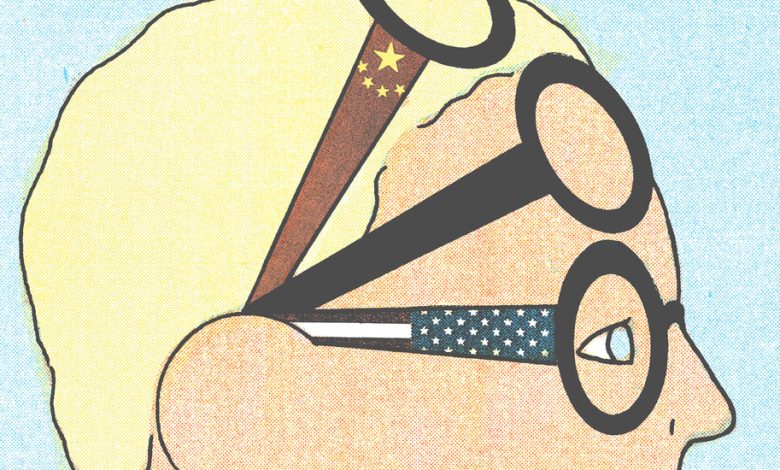Three Interpretations of ‘The Three-Body Problem’

Having watched some (though not quite all) of “3 Body Problem,” Netflix’s hit adaptation of “The Three-Body Problem,” the first book in a science-fiction saga by the Chinese author Liu Cixin, I’m struck by the unusual geopolitical weight this particular piece of pop entertainment carries. At a time when Chinese-American relations are notable for a lack of sustained cultural exchange, here is a best-selling work written within our leading rival, carrying various clash-of-civilizational themes, translated into popular television for an American audience. There aren’t a lot of other cases where a major piece of pop culture is so clearly working along the fault lines that have led to great-power conflict and could one day lead to war.
But then I’m also struck, reading the commentary surrounding the show and the books, by how the different projects of translation — from Chinese-language phenomenon to English-language best seller, then from book to TV show — have created an instability of interpretation, a difficulty settling on a narrative about what Liu’s story really means. Even a three-interpretation problem, you might say (sorry!), with different gazes and different translations yielding very different readings and reactions. (Some spoilers follow.)
Consider, first, the book as seen through Western eyes. The default American reaction to any work of literature produced under authoritarian conditions is to assume that it must be an act of rebellion or at least critique. Maybe not quite Aleksandr Solzhenitsyn’s “The Gulag Archipelago” but, at the very least, Boris Pasternak’s “Doctor Zhivago.”
Liu’s novels offer various permissions for this kind of interpretation, beginning with the way he features his country’s Cultural Revolution, depicting it as a primal horror that leads a character to such deep rage and disillusionment that she willingly collaborates with an alien civilization bent on the conquest of Earth. In the Chinese-language original, the Cultural Revolution material was planted midway through the story; in the English translation, it was brought to the front, and Liu has said that this is what he intended all along, that the English version is the truer one and the Chinese version was artistically warped to escape the censors’ eyes.
From this telling use of Chinese Communist history and even more telling English-language alteration, you can proceed to a reading like the one offered initially in this essay by Reason magazine’s Peter Suderman, where the entire story of interstellar conflict, between an earthbound humanity and advanced aliens who have a way to observe our every move and impede our scientific progress while their invasion fleet gradually approaches, reads as a commentary on China’s “surveillance authoritarianism.” As with earthlings under the high-tech eye of the aliens, so with the subjects of China’s regime: Like Liu’s invasion-shadowed human beings, Suderman writes, “Chinese citizens are always being watched, always being spied upon, creating a climate of fear and distrust and paranoia, and repressing the sort of free back and forth that is necessary to both scientific progress and cultural cohesion.”
But then read this 2019 profile of Liu in The New Yorker by Jiayang Fan, and you may arrive at a very different way of thinking about his novels. Maybe the interstellar clash of civilizations is meant to evoke China’s rise and America’s resistance to its rise, but the aliens aren’t the oppressive regime in Beijing. Instead, they’re stand-ins for the Americans, for us: a civilization that’s more technologically advanced and, for now, better armed than its emerging rival but destined to be overmastered unless it can find a way to divide and suppress and distract and demoralize. The various mechanisms the aliens use to keep the earthlings down are like manifestations of American power as perceived in a paranoid China — American surveillance and spycraft and economic sabotage, American pop cultural sludge, maybe even American democracy promotion.
